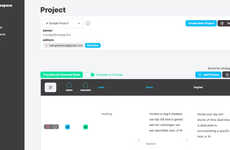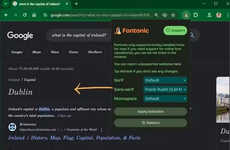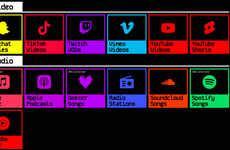
Domains in 12 Languages
Mitchell Fanning — October 17, 2007 — Pop Culture
References: theglobeandmail
Since the first days of the internet, it has been dominated by the English language, but a new experiment launched today could evoke the greatest change since the birth of the World Wide Web.
All web addresses have used the Roman alphabet (.com, .org, .net, etc.), no matter what the originating country or site language. That would be as awkward for us to use Asian characters, Arabic script or the Russian alphabet. We would have no idea what it meant.
The new study launched this week will "threatens to disrupt the status quo online and could change the way French-speaking and Native Canadians surf the Web," the Globe and Mail said.
US domain regulator, ICANN, has set up 11 test sites in languages other than English.
All web addresses have used the Roman alphabet (.com, .org, .net, etc.), no matter what the originating country or site language. That would be as awkward for us to use Asian characters, Arabic script or the Russian alphabet. We would have no idea what it meant.
The new study launched this week will "threatens to disrupt the status quo online and could change the way French-speaking and Native Canadians surf the Web," the Globe and Mail said.
US domain regulator, ICANN, has set up 11 test sites in languages other than English.
Trend Themes
1. Multilingual Domain Names - The experiment to allow web addresses in multiple languages threatens to disrupt the dominance of English-language domains.
2. Linguistic Diversity Online - The introduction of web addresses in various languages can transform the way people access and navigate the internet, catering to different linguistic preferences.
3. Localized Online Experience - Enabling domain names in non-English languages presents an opportunity to create a more inclusive and user-friendly online experience for speakers of different languages.
Industry Implications
1. Internet Services - The introduction of multilingual domain names can open avenues for internet service providers to cater to a broader customer base globally.
2. Technology - The development of systems and infrastructure to support multilingual web addresses presents a technological innovation opportunity in the online space.
3. Localization Services - The demand for localization services will likely increase as businesses and websites adapt to the use of domain names in multiple languages.
2
Score
Popularity
Activity
Freshness























